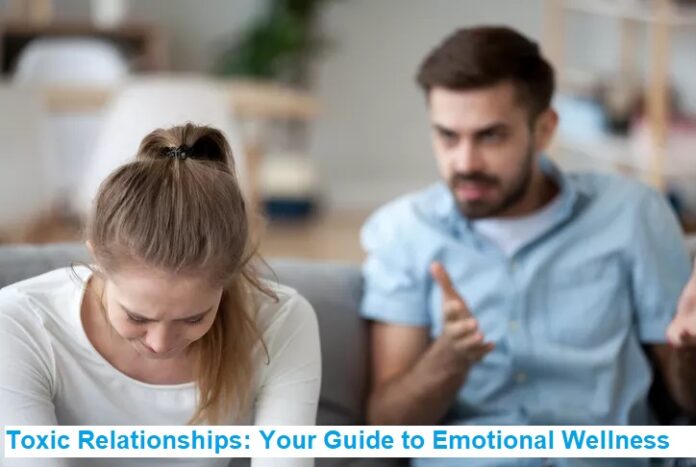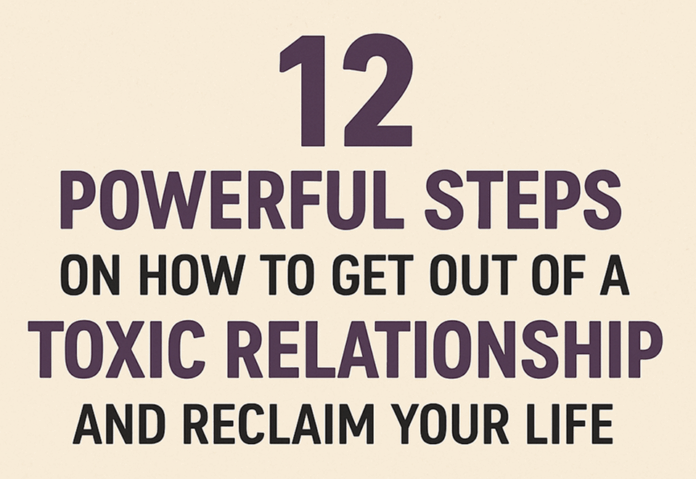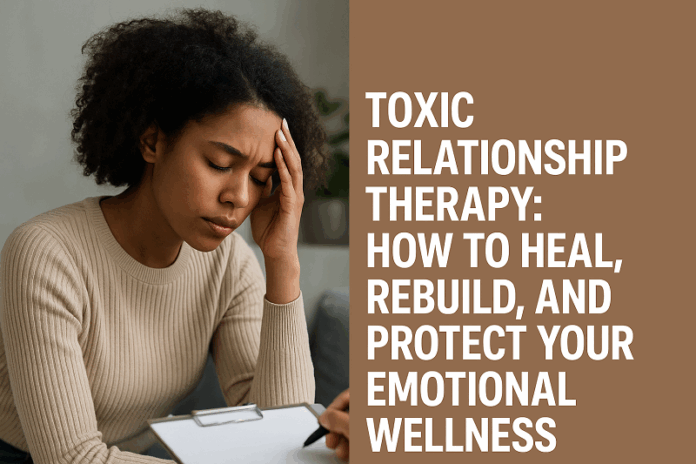Toxic relationship therapy is a structured, research-backed process designed to help people recognize harmful relationship patterns, heal from emotional abuse, and rebuild their confidence with healthier boundaries. Whether you’re navigating the aftermath of an unhealthy partnership or still caught in one, therapy can provide the clarity, tools, and support you need to reclaim your emotional wellness.
Have you ever asked yourself, “Why do I feel drained every time I’m around this person?” or “Why can’t I just leave even when I know it’s unhealthy?” If so, you’re not alone. Millions of people around the world live with toxic relationship warning signs but may not even realize the depth of damage being done until therapy shines a light on it.
This article is your complete guide to understanding toxic relationship therapy: what it is, why it’s necessary, how it works, and how it can empower you to heal and thrive.
Understanding Toxic Relationship Therapy
What Is a Toxic Relationship?
A toxic relationship isn’t simply one where two people disagree sometimes. Conflict is normal in healthy bonds. Toxicity occurs when one or both partners engage in patterns of manipulation, emotional abuse, and control that undermine safety and trust.
Common toxic relationship warning signs include:
- Constant criticism or belittling
- Gaslighting (making you question your reality)
- Stonewalling or silent treatment
- Extreme jealousy or possessiveness
- Lack of respect for boundaries
(Read more: relationship advice)
As Dr. Lillian Glass, who first popularized the phrase “toxic people,” explains:
“A toxic relationship consistently makes you feel worse rather than better, leaving you emotionally exhausted instead of supported.”
What Is Toxic Relationship Therapy?
Toxic relationship therapy is a focused type of counseling that helps individuals:
- Recognize the dynamics of unhealthy relationships
- Process the psychological impact of emotional abuse
- Develop coping strategies to break cycles of manipulation
- Heal trauma through methods like CBT, DBT, or EMDR
- Rebuild self-esteem and trust in future relationships
It’s not about “fixing” the toxic partner—it’s about helping you heal and create safe, empowering connections moving forward.
Why People Stay in Toxic Relationships
The Psychology of Trauma Bonds
One of the hardest parts of toxic relationships is that people often feel deeply tied to the very person causing harm. Psychologists call this a trauma bond—a cycle where periods of abuse are followed by affection or “love-bombing.” This creates addictive highs and lows, keeping victims trapped.
Social and Cultural Pressures
In many cultures, leaving a partner or marriage comes with stigma. Family expectations, religious beliefs, and financial dependency can reinforce staying in an unhealthy relationship.
(Read more: emotional wellness)
A Real-Life Story: Maya’s Experience
Consider Maya (a composite example). She lived with a partner who criticized her appearance, restricted her friendships, and monitored her phone. Each time she tried to leave, he promised to change. Maya described it as “walking on eggshells.” Therapy helped her see these were not normal disagreements—they were toxic relationship warning signs.
Through counseling, she built the courage to leave safely, rebuild her self-worth, and eventually thrive in healthier relationships.
Signs You May Need Toxic Relationship Therapy
If any of the following resonate, therapy could be life-changing:
- Constant anxiety or dread about your partner’s reaction
- Feeling isolated from friends, family, or support systems
- A loss of self-confidence or sense of identity
- Blaming yourself for your partner’s behavior
- Feeling guilty for prioritizing your own needs
- A constant “walking on eggshells” atmosphere
(Read more: dating tips)
Therapists note that denial is often the biggest barrier—many people normalize toxic patterns until someone names them in therapy.
The Healing Power of Toxic Relationship Therapy
Cognitive Behavioral Therapy (CBT)
CBT helps clients reframe distorted thinking, such as “Maybe it’s my fault they yelled at me.” In therapy, survivors learn to challenge negative self-beliefs and replace them with healthier thought patterns.
Trauma-Informed Therapy
Therapists trained in trauma-informed care help clients process how past abuse affects present decisions. This is especially important for people who grew up in toxic households and unknowingly replicate these dynamics as adults.
Group Therapy and Support Circles
There’s immense healing in realizing: “It’s not just me.” Group therapy provides a safe, validating space to share experiences and gain strength from others who’ve walked the same path.
According to the American Psychological Association, survivors who undergo structured therapy report marked improvements in self-esteem and emotional regulation within 6–12 months.
Steps to Reclaim Your Power
1. Acknowledgment Without Blame
The first step in therapy is often naming what happened. Many clients blame themselves. Therapy helps shift the narrative: you didn’t cause the toxicity—you endured it.
2. Building Healthy Boundaries
Boundaries are the backbone of emotional wellness. In toxic relationships, boundaries are often bulldozed. Therapy teaches you how to set and enforce them with confidence.
building healthy relationships
3. Creating a Support System
Healing is easier when you’re not alone. Support might look like trusted friends, family, online forums, or community wellness groups.
4. Self-Care as Recovery, Not Luxury
Self-care is more than spa days—it’s therapy homework, journaling, meditation, movement, and reclaiming joy. Therapy emphasizes sustainable practices that ground your healing journey.
5. Safe Exit Planning
For those still in toxic relationships, therapy provides structured plans for safe exits, including connections to domestic violence hotlines, financial planning, and legal support.
Expert Insights on Healing
- Dr. Judith Herman, trauma specialist, emphasizes: “Healing is not about forgetting—it’s about reclaiming your power in the present.”
- Many therapists recommend gradual exposure therapy, which helps survivors slowly rebuild trust in safe relationships.
- Financial empowerment programs are often suggested for those leaving marriages where money was used as control.
National Domestic Violence Hotline
Long-Term Resilience After Therapy
Healing doesn’t stop after therapy—it’s a lifelong skillset. Survivors who’ve gone through toxic relationship therapy often describe:
- Recognizing red flags early in new relationships
- Building partnerships based on respect and reciprocity
- Advocating for others experiencing emotional abuse
As one survivor put it: “Therapy didn’t just help me leave a toxic relationship—it helped me create a new one with myself.”
Cultural Perspectives on Toxic Relationship Therapy
- Western Context: Therapy is widely available but often stigmatized as “weakness.”
- African & Asian Contexts: Cultural emphasis on family unity sometimes prevents people from leaving, but community-based support groups are emerging.
- Global Trend: Online therapy platforms like BetterHelp and Talkspace are making toxic relationship therapy more accessible worldwide.
(Read more: mental health awareness)
Conclusion
Toxic relationship therapy is not just about healing—it’s about reclaiming your peace, your power, and your possibility.
If you’ve been questioning whether your relationship is damaging your well-being, take this as your sign: you are not overreacting. Therapy can be the mirror that shows you the truth and the map that guides you to safety and healing.
You deserve relationships that nourish, not drain. You deserve love that uplifts, not diminishes. And with therapy, you can get there.
FAQs
1. What is toxic relationship therapy?
It’s specialized counseling that helps people recognize, heal, and move on from toxic or emotionally abusive relationships.
2. Can therapy help me leave a toxic partner?
Yes. Therapy offers exit strategies, emotional support, and resources for safe separation.
3. How long does healing take?
It varies, but many report improvements within 6–12 months of consistent therapy.
4. Can toxic relationships ever be fixed?
Only if both partners commit to deep, consistent change—but therapy often reveals when leaving is the healthiest option.
5. Is group therapy effective for toxic relationships?
Absolutely. Shared stories reduce isolation and provide collective empowerment.



